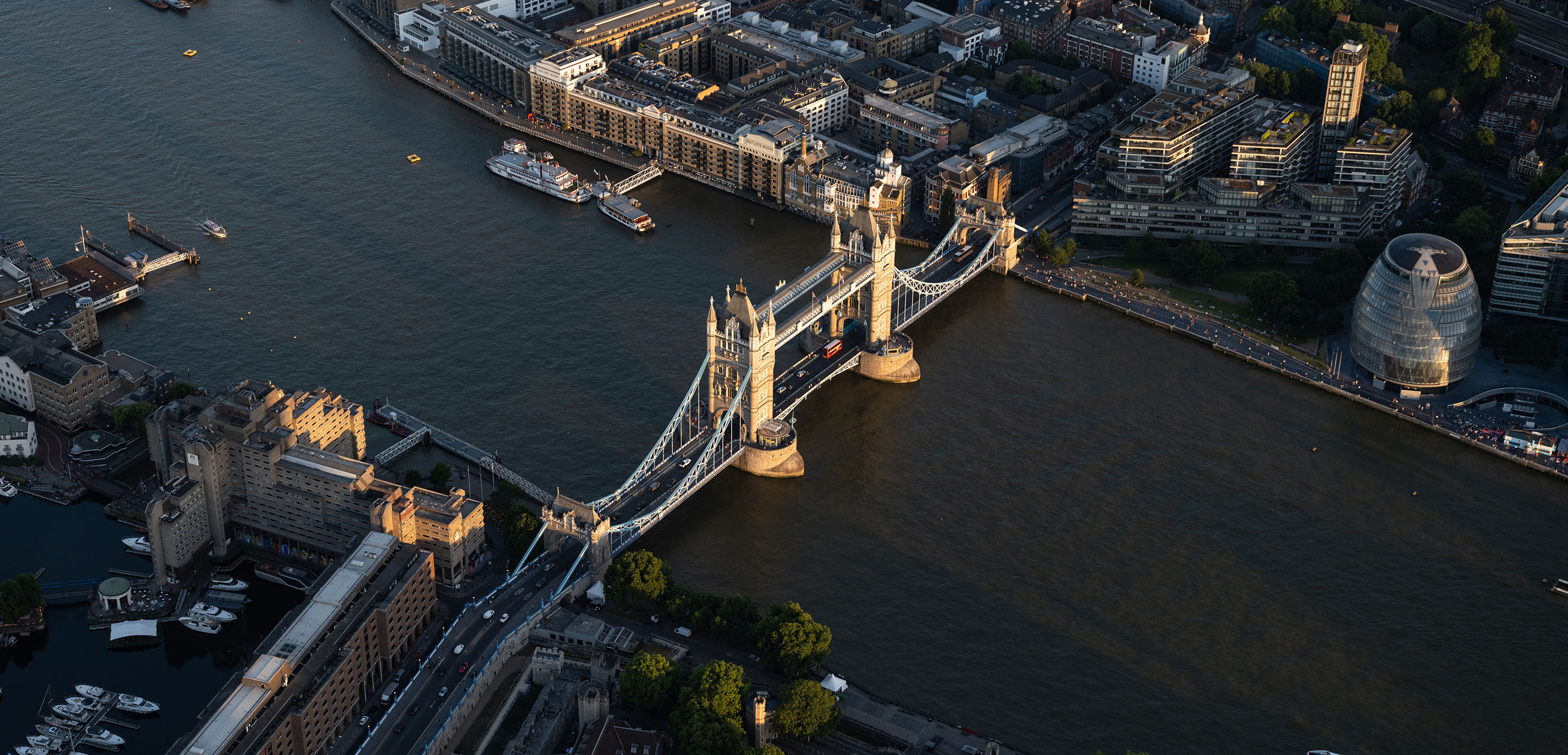- Article

- Market & Regulatory Insights
- Outlook
The UK state of play
The UK’s economy and its role on a turbulent global stage was the focus for HSBC’s recent ‘UK State of Play’ seminar in London.
Business leaders and investors heard from HSBC executives, economists and strategists, as well as esteemed guest speakers: The Rt Hon Sir Ben Wallace, British politician and expert in national security, and Baroness Poppy Gustafsson, UK Minister of State (Minister for Investment), about the UK’s challenges and opportunities.
The UK’s role on the global stage
Setting the scene, Sir Ben Wallace shared his perspectives with Dr Helen Belopolsky, Global Head of Geopolitical Risk, HSBC. He noted that the current political instability, which feeds market volatility, will settle and that the sentiment of anxiousness will evolve.
Commenting on the UK’s foreign policy, he said: “We have to be better at competing, and we have to be better at fighting for our economic growth, survival and influence. As the world becomes more multi-lateral, with groupings around common interests, post-Brexit Britain is learning how much alliances matter. It’s re-learning the importance of bilateral and trilateral relationships. If it gets this right, it can be successful and strengthen our friendships.”
On the topic of the UK’s relationship with the US, he pointed out this does not need to balance with other alliances. He commented that this special relationship runs deeper than who is in the Oval office.
Sir Ben also stressed that the UK needs to have in place a political solution and proper thought on how its deals and works with China.
The global picture
Janet Henry, HSBC’s Global Chief Economist, shared insights on the global macroeconomic backdrop, as investors digest the implications of tariffs and navigate intense global market volatility.
She noted HSBC’s reduced global growth forecasts, where – while we still expect the US Federal Reserve to lower rates this year – HSBC Global Research foresees fewer cuts than the market currently anticipates.
“Tariffs will negatively impact the global economy but there will be relative winners and losers,” she said. “Countries with lower exposure to US imports of tariffed items – particularly if also set to benefit from mainland China and EU fiscal stimulus – will be more immune.”
The UK’s economy
The trade deals the UK has secured with the US and India this week mark a positive step forward.
The UK-US trade deal secures lower-tariff quotas for British car, steel and aluminium exports, and increased market access for American exports, particularly in agriculture.
However, the 10% baseline tariff of other US imports from the UK is likely to remain in place. This follows upheaval in the defence environment, with many policymakers in the UK and Europe concluding Europe can no longer rely on the US defence umbrella.
These developments occur against a UK economic backdrop of stagnation and inflation that is still uncomfortably high.
Liz Martins, HSBC’s Senior UK Economist, noted that while direct tariff impacts on the UK should be relatively small, concerns remain in regard to sluggish growth, slow productivity and lack of investment. However, she also pointed to some brighter spots, including some disinflation pressures building, household balance sheets steadily improving and the potential for more rate cuts from the Bank of England than are priced in by the markets.
Focusing on the UK’s public finances, Simon Wells, Chief European Economist, argued that “muddling through” is not a long-term solution to the UK’s fiscal challenges and doesn’t address the underlying long-term issue. He cited potential solutions including a fundamental re-think of the tax framework, welfare and health reform, rises in one or more of the main sources of tax revenue (income tax, national insurance, VAT and corporation tax) and being bolder on investment – particularly in housebuilding and infrastructure.
Investment in the UK
In a fireside chat with Liz Martins, the UK Minister for Investment, Baroness Poppy Gustafsson CBE, discussed the UK government’s approach to driving growth through investment.
"The UK has a thriving business hub, but there is still much to do in tackling barriers to make sure this country remains a top destination for investment,” commented Baroness Gustafsson.
She continued, “That’s why growth is our number one mission in Government, and we’re listening to investors’ concerns to make sure that our modern Industrial Strategy will drive growth in the economy and hardwire stability for investors, giving them the confidence to plan not just for the next year, but for the next 10 years and beyond."
She pointed to the Universal UK Project, where construction of a new theme park and resort is set to begin in Bedford UK, as a good example of a multi-billion-pound investment.
Resilience, leadership and innovation
Concluding the seminar, Richard Bibbey, HSBC’s Global Head of Institutional Sales, reflected on the value of the insights shared on the UK’s macroeconomic, geopolitical and regulatory environment in better understanding the complexities, risks and opportunities that lie ahead.
He commented: “These perspectives underscore the importance of resilience, leadership, and innovation in shaping the future”.

HSBC Global Investment Summit
Our second Global Investment Summit took place in Hong Kong 25 to 27 March 2025. Explore expert insights and thought provoking dialogue on pressing opportunities and challenges with experts and leaders from around the world.


